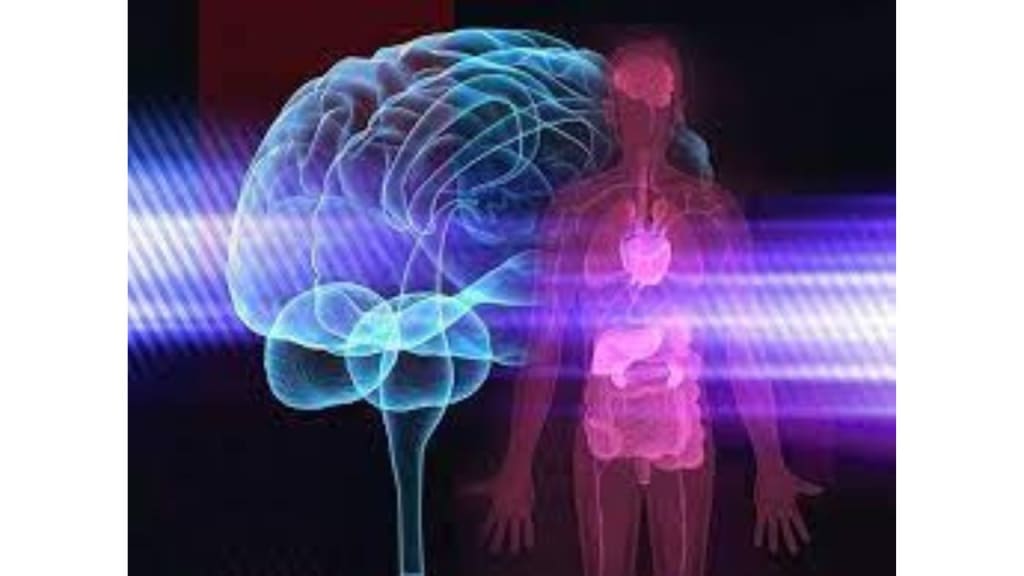"Understanding the Mind-Body Connection: Exploring the Link between Mental and Physical Health"
The Intricate Interplay of Thoughts, Emotions, and Physical Well-being

Introduction:
The mind and body are deeply intertwined, each influencing the other in profound ways. While we often perceive mental and physical health as separate entities, research has increasingly revealed the intricate connection between them. Understanding this mind-body connection is crucial for promoting overall well-being and achieving optimal health. In this article, we will explore the interplay of thoughts, emotions, and physical well-being, shedding light on the significance of nurturing both mental and physical health.
The Impact of Thoughts and Emotions on the Body:
Our thoughts and emotions exert a significant influence on our physical health. Studies have shown that negative emotions such as stress, anxiety, and depression can have detrimental effects on the body. Chronic stress, for instance, has been linked to a higher risk of cardiovascular diseases, weakened immune system, and digestive disorders. Similarly, prolonged periods of anxiety or sadness can manifest as physical symptoms, including headaches, muscle tension, and fatigue.
Conversely, cultivating positive emotions and adopting a healthy mindset can promote physical well-being. Research suggests that individuals with optimistic attitudes have a lower risk of developing chronic diseases, experience faster recovery from illnesses, and enjoy overall better health outcomes. Positive emotions, such as joy and gratitude, have been associated with strengthened immune function and reduced inflammation in the body.
The Role of Stress:
Stress is a common experience in today's fast-paced and demanding world, and its impact on both mental and physical health is significant. When we encounter stressful situations, our body releases stress hormones like cortisol, which trigger a physiological response known as the "fight-or-flight" response. While this response is essential for our survival in acute situations, chronic stress can wreak havoc on our well-being.
Persistent stress can lead to a range of health problems, including high blood pressure, heart disease, and weakened immune function. It can also contribute to the development or exacerbation of mental health conditions such as anxiety disorders and depression. Managing stress through techniques like mindfulness, relaxation exercises, and engaging in activities we enjoy can help mitigate its negative effects on both the mind and body.
The Gut-Brain Connection:
Another fascinating aspect of the mind-body connection lies in the relationship between the brain and the gastrointestinal system, often referred to as the gut-brain connection. This bidirectional communication system involves complex interactions between the gut and the central nervous system, influencing not only digestion but also emotions, mood, and mental well-being.
The gut contains millions of nerve cells that produce neurotransmitters and chemicals that affect brain function and behavior. Research has shown that imbalances in gut bacteria, known as the gut microbiome, can impact mental health conditions such as depression and anxiety. Additionally, individuals with gastrointestinal disorders often experience psychological symptoms such as stress and depression.
Nurturing the Mind-Body Connection:
To promote overall well-being, it is essential to prioritize both mental and physical health. Here are some practices that can help nurture the mind-body connection:
Regular Exercise: Engaging in physical activity not only improves physical fitness but also enhances mood and reduces stress. Exercise stimulates the release of endorphins, which are natural mood boosters, and can contribute to better mental health outcomes.
Mindfulness and Meditation: Practicing mindfulness and meditation techniques can help reduce stress, increase self-awareness, and promote emotional well-being. These practices involve paying attention to the present moment without judgment and can foster a sense of calm and relaxation.
Balanced Diet: Consuming a nutritious diet plays a crucial role in supporting both mental and physical health. A diet rich in fruits, vegetables, whole grains, and lean proteins provides essential nutrients that support brain function and overall well-being.
Adequate Sleep: Getting enough restful sleep is vital for cognitive function, emotional regulation, and physical health. Poor sleep can contribute to increased stress levels, impaired immune function, and mood disturbances.
Seeking Support: It's important to reach out for support when needed. Whether it's talking to a trusted friend or family member, seeking therapy, or joining support groups, having a strong support system can significantly contribute to mental and physical well-being.
Conclusion:
The mind and body are intricately connected, and nurturing this connection is essential for achieving optimal health. Our thoughts, emotions, and physical well-being are intertwined, with each influencing the other in profound ways. By adopting practices that promote mental and physical health, such as managing stress, prioritizing self-care, and seeking support when needed, we can enhance our overall well-being and lead fulfilling lives. Remember, taking care of the mind and body is a holistic approach that leads to a happier and healthier life.





Comments
There are no comments for this story
Be the first to respond and start the conversation.